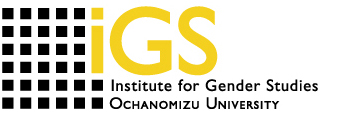3rd IGS Seminar (Reproductive Issue Series) “The Ethics of Prenatal Testing”
In 2015, the Institute for Gender Studies held an IGS seminar (in English) at which Catherine Mills of Monash University visited our institute and gave a presentation called “Choice and Consent in Prenatal Testing in Australia.” Mills visited Japan again in 2016 and we were able to hold another English-language seminar with her on November 10t. We also invited Kaori Muto of The University of Tokyo as a speaker for the seminar, and Yasushi Ishida gave comments following each of the two presentations.
In 2016, we chose “The Ethics of Prenatal Testing” as the theme for the seminar. Mills introduced a case in which a pregnant woman learned that her female fetus’s hand was missing. The doctors’ feeling was that a missing hand did not necessarily warrant termination, but the couple decided to terminate the pregnancy because “the cosmetic impact of the missing limb would be greater for a girl.” Muto reported the current status of NIPT (non-invasive prenatal testing, cell-free DNA testing) in Japan and introduced the results of a research project she conducted with her colleagues based on answers given by genetic counselors to a questionnaire developed for individual interviews. When NIPT was introduced in Japan in 2013, there was concern that it might promote eugenics and result in a high percentage of abortions, or that pregnant women might rush to clinic to get appointments. However, throughout interview studies of Muto and her colleagues, they found that most pregnant women decide not to take the test if they are properly informed about NIPT.
Following these two presentations, Yasushi Ishida focused on ethical aspects of the discussions, and made comments from the perspective of a philosopher. About Mill’s presentation, he pointed out that the fetus was aborted because it was female, even though a missing hand was considered to be a relatively minor fetal malformation. He then mentioned that people’s thinking about “architecture of choice,” “perception of severity,” “normality,” and “health and disease” differ according to the society or situation, and that “being anomalous” and “abnormal” are not always the same. He addressed the question of selective abortion on the basis of fetal sex and fetal anomalies. Regarding Muto’s presentation, Ishida focused on the issues of mass screening, and insisted on the need for society to pay attention to disabled people, citing the cases of “Aoi Shiba no Kai” (the national association of people with cerebral palsy) and the “Unhappy Child.”
It was a small seminar with 12 participants, but we were able to have a fruitful discussion with interesting questions. Women in Japan are now encouraged to go to college and/or work outside the home, and therefore many women are active participants in the economy. Some of them therefore postpone pregnancy and childbearing while establishing their careers. Often they are over 35 years old when they get pregnant, and they seek prenatal testing to avoid having a child with abnormal chromosomes, as in the case of Down Syndrome, or with other impairments. However, is it obvious that disabled children shouldn’t be born? What should be considered impairments? Prenatal testing introduces various ethical problems.
(Yukari Semba, Project RF of IGS, Ochanomizu University)
Date/Time: Nov. 10, 2016 18:30–20:30
Seminar Venue: Room #408, Graduate School of Humanities & Science Bldg., Ochanomizu University
Language: English only
Speakers:
Catherine Mills (Monash University) “Gender, Disability and Bodily Norms in Prenatal Testing and Selective Termination of Pregnancy”
Kaori Muto (The University of Tokyo) “Ethics and Governance of Non-invasive Prenatal Testing in Japan”
Commentator: Yasushi Ishida (Ochanomizu University)
Coordinator: Yukari Semba (IGS, Ochanomizu University)
Organizer: Institute for Gender Studies, Ochanomizu University
Number of Participants: 12

